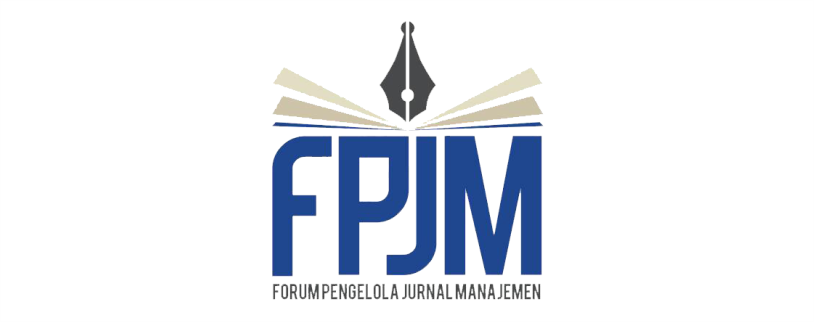The Mediating Role of User Satisfaction in the Relationship Between Information Systems Service Quality and Individual Performance in Malang University-Level e-Learning
DOI:
https://doi.org/10.26905/jmdk.v12i1.11241Keywords:
E-learning, Individual Performance, Information Systems, Information Systems Service Quality, User SatisfactionAbstract
This research investigates the multifaceted landscape of online education for students of higher education within Malang City, Indonesia. In today's digital learning era, the quality of Information System Service in online educational platforms stands as a critical factor. This study extends its scope beyond a straightforward examination of the direct relationship between Information Systems Service Quality and User Satisfaction  by introducing Individual Performance  as the final dependent variable, rendering User Satisfaction to be a mediating variable. Through meticulous quantitative analysis employing SmartPLS 3.0, this study unravels the fact that User Satisfaction emerges as a complement partial mediating agent, positively influencing the association between Information Systems Service Quality and Individual Performance for higher education students in Malang. This underscores the role of contented students in amplifying the positive effects of Information Systems Service Quality on their academic achievements. Beyond contributing to the comprehension of online education, this research holds substantial implications for educational institutions and policymakers. It underscores the necessity of adopting a comprehensive approach that intertwines Information Systems Service Quality and Student Satisfaction to foster successful and satisfied online learners, not only in Malang City but also in broader contexts.
Downloads
References
Aini, Q., Budiarto, M., Putra, P. O. H., & Rahardja, U. (2020). Exploring e-learning challenges during the global COVID-19 Pandemic: A review. Journal of Information System, 16(2), 47-65.
Alamsyah, N., Budiman, B., & Parama, T. (2023). Analysis of e-learning user acceptance using the Technology Acceptance Model (TAM) and end-User Computing Satisfaction (EUCS). Formosa Journal of Applied Sciences, 2(8), 1873-1892. https://doi.org/10.55927/fjas.v2i8.5405
Aldholay, A., Abdullah, Z., Isaac, O., & Mutahar, A. M. (2020). Perspective of Yemeni students on use of online learning: Extending the information systems success model with transformational leadership and compatibility. Information Technology & People, 33(1), 106-128. https://doi.org/10.1108/ITP-02-2018-0095
Aldholay, A. H., Abdullah, Z., Ramayah, T., Isaac, O., & Mutahar, A. M. (2018). Online learning usage and performance among students within public universities in Yemen. International Journal of Services and Standards, 12(2), 163-179. https://doi.org/10.1504/IJSS.2018.091842
Arfan, H. H., Misnawati, Sakkir, G., Puspita, N., Akbar, Z., & Yusriadi, Y. (2021). Student learning interest in covid-19 pandemic age by blended e-learning (Asynchronous and synchronous). In Proceedings of the 11th Annual International Conference on Industrial Engineering and Operations Management Singapore, 6330–6339.
Bazargan, K. (2021). Relationship between students’ readiness for e-learning, learner satisfaction and student performance: The case of a post-graduate education program. Quarterly Journal of Research and Planning in Higher Education, 27(3), 113-141.
Chopra, G., Madan, P., Jaisingh, P., & Bhaskar, P. (2019). Effectiveness of e-learning portal from students’ perspective: A structural equation model (SEM) approach. Interactive Technology and Smart Education, 16(2), 94-116. https://doi.org/10.1108/ITSE-05-2018-0027
Dangaiso, P., Makudza, F., & Hogo, H. (2022). Modelling perceived e-learning service quality, student satisfaction and loyalty. A higher education perspective. Cogent Education, 9(1), 2145805. https://doi.org/10.1080/2331186X.2022.2145805
DeLone, W. H., & McLean, E. R. (1992). Information systems success: The quest for the dependent variable. Information systems research, 3(1), 60-95. https://doi.org/10.1287/isre.3.1.60
DeLone, W. H., & McLean, E. R. (2003). The DeLone and McLean model of information systems success: A ten-year update. Journal of Management Information Systems, 19(4), 9-30. https://doi.org/10.1080/07421222.2003.11045748
DeLone, W. H., & McLean, E. R. (2016). Information systems success measurement. Foundations and Trends® in Information Systems, 2(1), 1-116. https://doi.org/10.1561/2900000005
Giatman, M., Siswati, S., & Basri, I. Y. (2020). Online learning quality control in the pandemic Covid-19 era in Indonesia. Journal of Nonformal Education, 6(2), 168-175. https://doi.org/10.15294/jne.v6i2.25594
HR Asia. (2020, October 22). Vietnam and Indonesia are opening up to e-learning. HR Asia. Retrieved from: https://hrasiamedia.com/featured-news/vietnam-and-indonesia-are-opening-up-to-e-learning/
Humas UMM. (2022, August 30). Drastic increase in the number of students who flooded Malang, said UMM experts. UMM News. https://www.umm.ac.id/en/berita/lonjakan-drastis-jumlah-mahasiswa-yang-banjiri-malang-ini-kata-pakar-umm.html
Idkhan, A. M., & Idris, M. M. R. (2023). The impact of user satisfaction in the use of e-learning systems in higher education: A CB-SEM approach. International Journal of Environment, Engineering and Education, 5(3), 100-110. https://doi.org/10.55151/ijeedu.v5i3.91
Laksana, D. N. L. (2020). Implementation of online learning in the pandemic Covid-19: Student perception in areas with minimum internet access. Journal of Education Technology, 4(4), 502-509. https://doi.org/10.23887/jet.v4i4.29314
Lee, E. Y., & Jeon, Y. J. J. (2020). The difference of user satisfaction and net benefit of a mobile learning management system according to self-directed learning: An investigation of cyber university students in hospitality. Sustainability, 12(7), 2672. https://doi.org/10.3390/su12072672
Li, Y., & Shang, H. (2020). Service quality, perceived value, and citizens’ continuous-use intention regarding e-government: Empirical evidence from China. Information & Management, 57(3), 103197. https://doi.org/10.1016/j.im.2019.103197
Marlina, E., Tjahjadi, B., & Ningsih, S. (2021). Factors affecting student performance in e-learning: A case study of higher educational institutions in Indonesia. The Journal of Asian Finance, Economics and Business, 8(4), 993-1001. https://doi.org/10.13106/jafeb.2021.vol8.no4.0993
Mukhibat, M., & Effendi, M. (2023). Evaluation of e-learning on learning outcome at universities in Indonesia. Educational Administration: Theory and Practice, 29(2).
Pangarso, A., & Setyorini, R. (2023). The drivers of e-learning satisfaction during the early COVID-19 pandemic: Empirical evidence from an Indonesian private university. Cogent Education, 10(1), 2149226. https://doi.org/10.1080/2331186X.2022.2149226
Parasuraman, A., Zeithaml, V. A., & Berry, L. L. (1985). A conceptual model of service quality and its implications for future research. Journal of marketing, 49(4), 41-50. https://doi.org/10.1177/002224298504900403
Pham, L., Williamson, S., & Berry, R. (2018). Student perceptions of e-learning service quality, e-satisfaction, and e-loyalty. International Journal of Enterprise Information Systems (IJEIS), 14(3), 19-40. https://doi.org/10.4018/IJEIS.2018070102
Pitt, L. F., Watson, R. T., & Kavan, C. B. (1995). Service quality: A measure of information systems effectiveness. MIS quarterly, 173-187. https://doi.org/10.2307/249687
Purba, A., Purba, R., Fatmawati, E., & Saputra, N. (2023). The effect of the online learning process and independent learning process on improving students’achievement. Journal of Namibian Studies: History Politics Culture, 33, 978-990. https://doi.org/10.59670/jns.v33i.547
Riandi, M. H., Respati, H., & Hidayatullah, S. (2021). Conceptual model of user satisfaction as mediator of e-learning services and system quality on students’ individual performance. International Journal of Research in Engineering, Science and Management, 4(1), 60-65. https://doi.org/10.47607/ijresm.2021.466
Siahaan, M. (2023, June 30). Total number of users of the online learning platforms market in Indonesia from 2017 to 2027. Statista. Retrieved from: https://www.statista.com/forecasts/1395187/indonesia-number-of-users-of-online-learning-platforms
Tejada, J. J., & Punzalan, J. R. B. (2012). On the misuse of Slovin’s formula. The philippine statistician, 61(1), 129-136.
Turmuzi, M., & Lu'luilmaknun, U. (2023). The impact of online learning on the mathematics learning process in Indonesia: A meta-analysis. JOTSE, 13(3), 694-717. https://doi.org/10.3926/JOTSE.2138
UNICEF. (2021). Strengthening digital learning across Indonesia: A study brief. UNICEF. Retrieved from: https://www.unicef.org/indonesia/media/10531/file
Zeithaml, V. A., Berry, L. L., & Parasuraman, A. (1996). The behavioral consequences of service quality. Journal of marketing, 60(2), 31-46. https://doi.org/10.2307/1251929
Downloads
Additional Files
Published
Issue
Section
License
Authors who publish with this journal agree to the following terms:
(1)Â Copyright of the published articles will be transferred to the journal as the publisher of the manuscripts. Therefore, the author confirms that the copyright has been managed by the journal.
(2) Publisher of Jurnal Penelitian is University of Merdeka Malang.
(3) The copyright follows Creative Commons Attribution–ShareAlike License (CC BY SA): This license allows to Share — copy and redistribute the material in any medium or format, Adapt — remix, transform, and build upon the material, for any purpose, even commercially.












